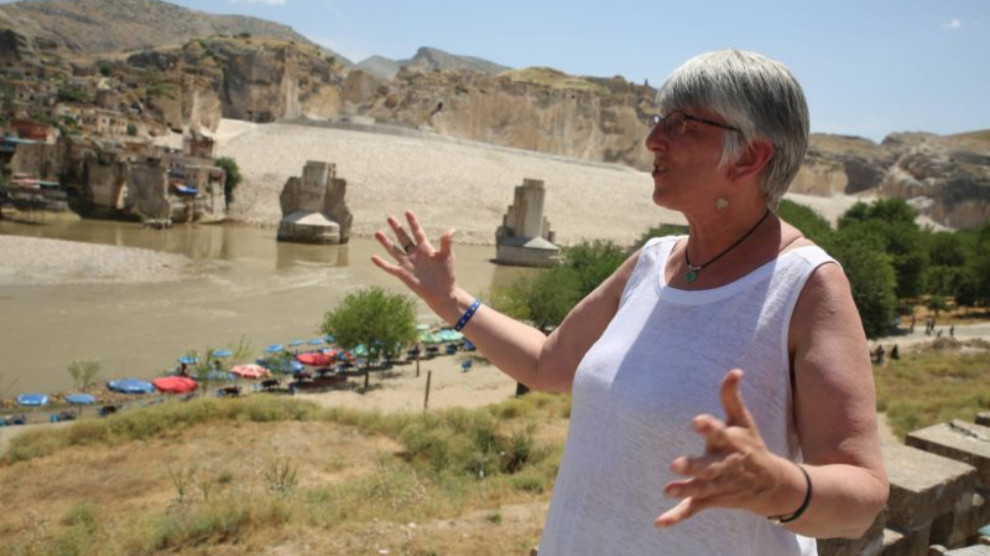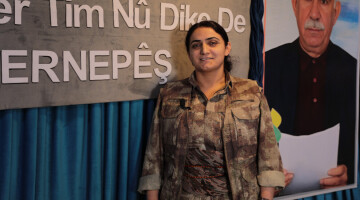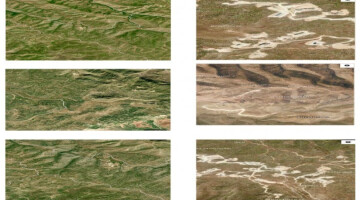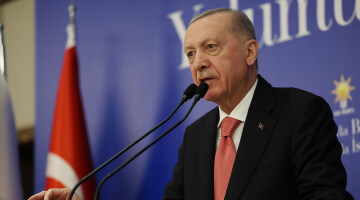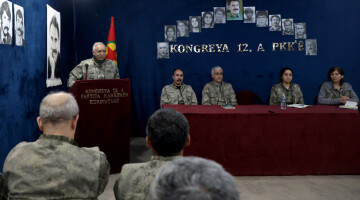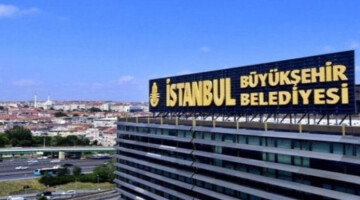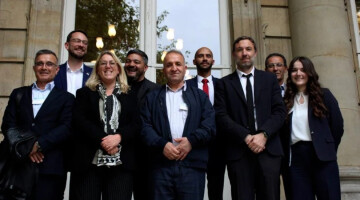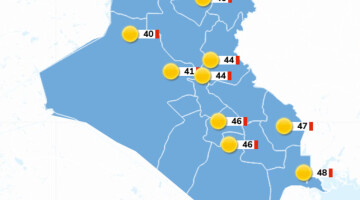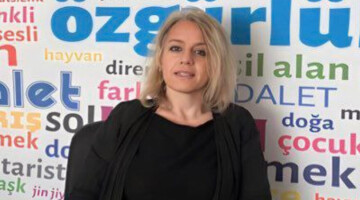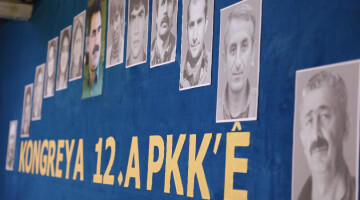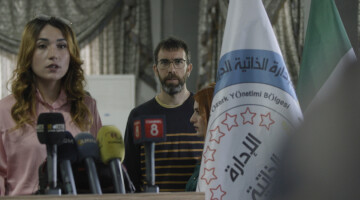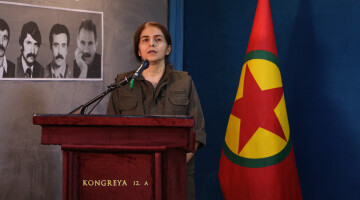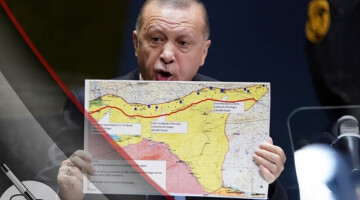Julie Ward is a British Member of the European Parliament for the North West England region for the Labour Party. She was first elected in 2014 and was re-elected in 2019.
Ward visited HDP Hakkari MP Leyla Guven during her hunger strike resistance demanding the end of isolation on Kurdish people’s leader Abdullah Ocalan.
Ward has been to Turkey and North Kurdistan several times and has also been to Rojava.
In the second and last part of this interview, Ward talked about how she first got to know the Kurdish cause, and how she got involved in exposing the human rights abuse Kurds are subjected to. She also talked of her remarkable efforts to save the 12-thousand years old Hasankeyf which is going to be flooded and disappeared by the Ilisu Dam.
Let's begin this second part with a more personal level. When and how did you get to know Kurds?
I was approached by a Kurdish student in my constituency in Greater Manchester in 2016. He was befriended by the investigative journalist John Hunt who has spent a good deal of time in various parts of Kurdistan. Together they came to my office to ask if I would raise the issue of Turkish aggression against the Kurds at European level.
I agreed even though I knew very little. Shortly after that I was invited to participate in a week-long study visit to Diyarbakir and Nusayabin with the European Grassroots Anti-Racist Movement in October 2016. On my way to Diyarbakir I was detained and interrogated at Atatürk airport, simply because of my destination. I knew then that I had to get involved and help to expose the state paranoia about the Kurds and tell the truth by engaging on a deep level.
You are very much involved in the Campaign to save Hasankeyf. Do you think there is enough awareness in Europe of the magnitude of the tragedy Hasankeyf is actually facing?
No there is not enough awareness at European level of the tragic situation in Hasankeyf. There has, however, been an increased awareness of the loss of significant cultural heritage due to the destruction by ISIS (Da'esh) of iconic monuments such as those at Palmyra.
The recent EU Year of Cultural Heritage was also successful in raising general awareness about threats to cultural heritage. When the statue of Kawa was destroyed by Turkish military in Afrin this was reported in the European media so there is a growing awareness of the attack on Kurdish culture by the Turkish state.
I think it is easier for people to identify cultural heritage via an iconic monument, especially something figurative and especially something linked to great deeds, stories, religious texts and myths. The cultural heritage at Hasankeyf is complex and spread over a wide area. It comprises many different sites and structures, dating from different periods. It is difficult therefore to identify an iconic image.
Also, the building of a dam might sound like a plausible reason for the inundation, especially to an non-specialist audience, and the removal and the relocation of cultural remains, structures and artefacts can give the impression that someone (eg. the state) is taking care of the threatened heritage. Finally, the EU's first priorities are generally its own Member States. Neither does it help that Turkey has withdrawn from the Creative Europe programme.
What can be done at institutional level?
I was very glad to see that Europa Nostra included Hasankeyf in its 2013 list of nominations for "most endangered" cultural heritage, and included the city in its 2016 list of 7 'Most Endangered'. Europa Nostra is a greatly respected networking and advocacy organisation that works closely with the EU institutions. In a statement about the imminent flooding of Hasankeyf, dated June 2, 2019, the board and council of Europa Nostra said, "it is incumbent not only on Turkey but on the entire international community to ensure that this treasure is safeguarded."
The European Parliament Culture and Education Committee has initiated several important reports recognising the threats to cultural heritage but these have focussed on the looting and trafficking of artefacts rather than the destruction of cultural heritage by the state itself. Even within the EU the role of the institutions is limited as Member States retain competence for cultural policy.
Turkey's membership of the Council of Europe should however enable greater action especially under the Granada Convention regarding architectural heritage and the Valletta Convention of 1992 which aims to protect archaeological heritage from illegal excavations and major construction projects. I believe that not enough has been done at this level to challenge the Turkish government.
For my own part I have raised the issue of Hasankeyf amongst my peers in committee meetings, in the plenary and via special conferences and press and media. I also submitted a Written Question to the Commission in July 2017 requesting that the High Representative make a public statement against the relocation and destruction in Hasankeyf.
The office of the High Representative, Federica Mogherini, responded saying, that Turkey, as a (EU) candidate country and a member of the Council of Europe, was expected to conform with international norms applicable to the construction of projects such as the Ilısu Dam Project. I also wrote directly to the Dutch company Bresser regarding their involvement in the relocation of the Zeynel Bey Tomb asking them to withdraw from the project. In 2018 it was reported that the company did not meet OECD guidelines for due diligence, especially with regard to human rights norms appertaining to access to culture.
Most recently, in July 2019, I wrote a letter to Dominic Raab, the UK's Foreign Secretary, requesting that he take action by making representations to the Turkish Government regarding the negative impacts of the dam.
I received a disappointing response from Christopher Pincher MP, Foreign Office Minister responsible for relations with Turkey. He said, "I welcome the efforts made by the Turkish authorities to protect as much of the historical site as possible and to compensate those affected."
This is a lame answer which views the issue as a domestic matter and does not address my detailed concerns. Regarding water shortages downstream, Pincher simply urges dialogue between Turkey and Iraq. We know that the UK government is desperate to broker trade deals because of Brexit, and these would presumably include the sensitive issue of arms. Pincher's response exposes the Conservative policy of non-intervention in order not to annoy potential buyers.
Further action at institutional level requires increased pressure from politicians, experts and NGOs. There will be an opportunity to raise the issue of Hasankeyf as the new European Commission is being constituted, perhaps in the hearings and then as the new college of commissioners take office.
There is also an opportunity to raise the issue at early meetings of the newly constituted parliamentary delegation to Turkey. Meanwhile MEPs can try to keep the issue on the agenda by using the 1 Minute Speeches rule to address the plenary, and by searching for an appropriate means to raise the issue with the current presidency, the government of Finland.
The first part of this interview can be read here

